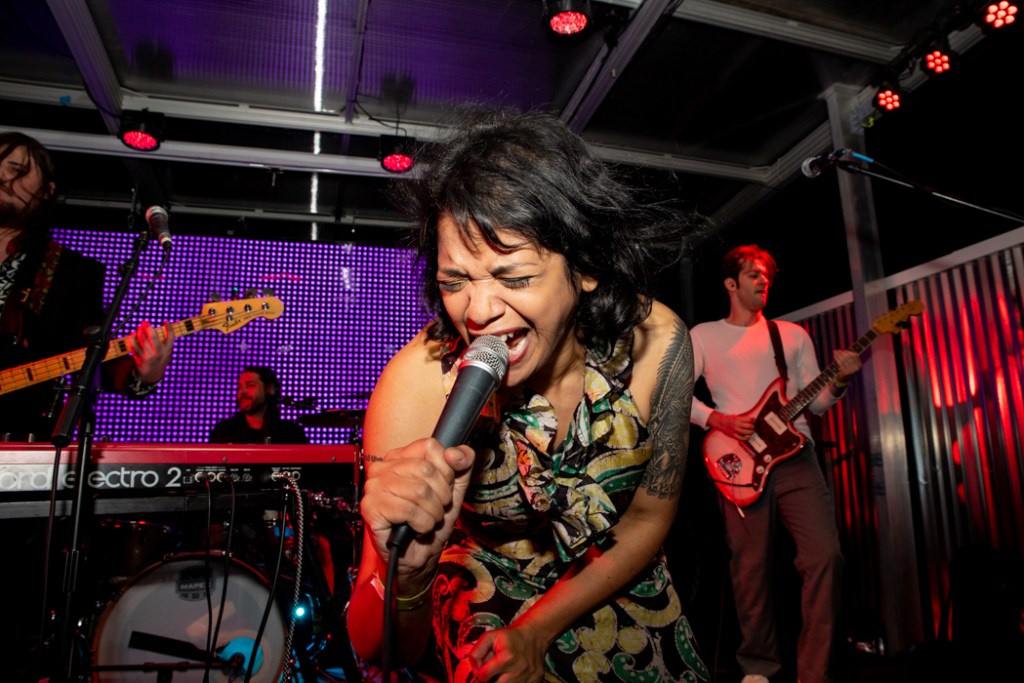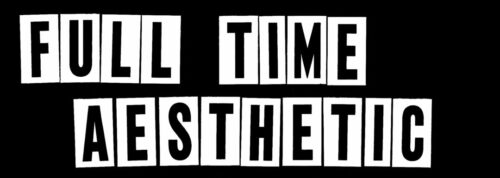Shilpa Ray Portrait of a Lady (cover photography by Ebru Yildiz)
In her latest album for Northern Spy Records, Shilpa Ray gets personal, political, and powerful on Portrait of A Lady. With her signature alto belt and harmonium accompanied by a range of other instruments, Ray delivers a timely record tinged with a balance of justified rage and critical contemplation. Not one to ever shy away from social commentary, Shilpa Ray tells off the patriarchy in Portrait of A Lady with 12 songs in just under 42 minutes.
The record also comes at a critical moment for abortion rights—just a few days after the album’s April 29th release, a SCOTUS document was leaked outlining the possible overturn of Roe v. Wade, which later came to pass in June, angering millions. This is a decision that has had dire consequences on the lives of birthing people everywhere, most especially where abortion is illegal. As the United States reckons with restricting access to essential reproductive care, amplifying the voice of an artist such as Shilpa Ray couldn’t be more important.
On her Bandcamp page, it is explicitly stated that the album is about Ray’s experience as a survivor of sexual abuse and assault with her adding: “This album is dedicated to the survivors. May we one day be able to reclaim ourselves.” With Portrait of a Lady, she has done the brave and important work of telling her story in a way that is deeply beautiful, dynamic, and riveting.

Shilpa Ray performing (photo by Kate Hoos)
The track arrangement allows for plenty of punctuated rage through the interweaving of fast-paced songs with slower ballads while also making space for sadness. The record opens with a song dedicated to Brett Kavanaugh called “Straight Man’s Dream” where Ray throws multiple punches to the Supreme Court Justice through searing commentary. “Ever think you’d be an asshole in high school?/Then be appointed to the highest court of law?/Beers and bros, basketball and hoes/Sweethearts blacked out with your claws over her jaw. Male bonding homo erectus/boy talk with your dick in the stars/what a dream, man, what a dream. I hope you burn from your eczema.“ She repeats the last line a few times until the song’s end, making clear how she’d like to see Kavanaugh disintegrate.
The second song on the album is a reclamation in power. On “Manic Pixie Dream Cunt,” she turns up the heat with a fast-tempo track that features her signature howl with incredible vocal control: “You can go gas lighting/Go gas lighting/Cause Imma gonna burn this palace down/Burn this palace down!/Burn this palace down!” Ray yells throughout the song, clear on her intent to be as destructive as possible when it comes to tearing down structures of patriarchal power. “I’m a manic pixie dream cunt/Yeah I’m a manic pixie queen/I’m a manic pixie dream cunt/Livin’ the manic pixie dream/I’m manic/Up yours morality.” Clearly, she is pissed off and she’s also managed to channel her anger into a memorable and rocking track on Portrait of a Lady.

Shilpa Ray performing (photo by Kate Hoos)
At the end of the album’s A-side is “Cry For The Cameras,” a song where Ray delves into how stories of abuse can become sensationalized. The song features a heart-wrenching opener of “Your story doesn’t have a chance to survive/Unless it’s being heavily televised/Break out those big tears, my darling/Network tears, my darling/Look straight at the lens and learn how to cry.” She is acutely aware of how little the media actually cares about telling the stories of survivors and reminds listeners not to confuse media sensationalism with actual change. Stylistically “Cry For The Cameras” is the most surreal song on the record. She belts in a retro style against a backdrop of harmonium and lightly strummed guitars. The song maintains a slower pace throughout, with an obvious sadness setting the song’s tone.
In detailing her deeply personal experiences as a survivor of sexual abuse and assault, Ray makes sure not to leave out the topics of women working against their own interests and men masquerading as feminists. “Bootlickers of the Patriarchy” was released last November as a single ahead of the album and was written about Senator Susan Collins’ infamous press conference after the Kavanaugh/Blasey Ford hearings (read our review of the single). The song is an important reminder that indeed there are women in the world who are only interested in their own advancement at the expense of other women. “Male Feminist” provides essential commentary on the landscape of men pretending to fight for the rights of women and gender non-conforming people as a method of social gain.
Portrait of a Lady concludes with “Last Wave,” a track where Ray reflects on what she’s been through, and how she might react if feminism had a last wave. “Happy endings are not only for the rich/the thin veneer of civilization/and when we’re equal, I won’t know where to begin/wake me up and tell me what’s my endgame.” The song feels like a distant reality because it is. She is well aware that the fight for the rights of women and non-men is a never-ending fight, but one that is of course necessary. Luckily for us, we have a catchy, sharp, and powerful record to listen to as we work to alleviate the destructive nature of the patriarchy. “What fool thinks a woman could ever break like a little girl? I’ve been waiting with a bat in my hands to put your lights out in this world.”



Shilpa Ray performing (photos by Kate Hoos)
It cannot be overstated just how original Portrait of a Lady truly is. From personal anecdotes to incorporating current events, this is easily one of the most important and relevant releases of the year. Shilpa Ray should be considered an essential listen for anyone who remotely cares about good music and destroying the patriarchy.
Portrait of a Lady is out now via Northern Spy Records and is available on all major streaming platforms.
Find Shilpa Ray on:
Instagram, Twitter, Facebook, YouTube
Read more FTA coverage here.

